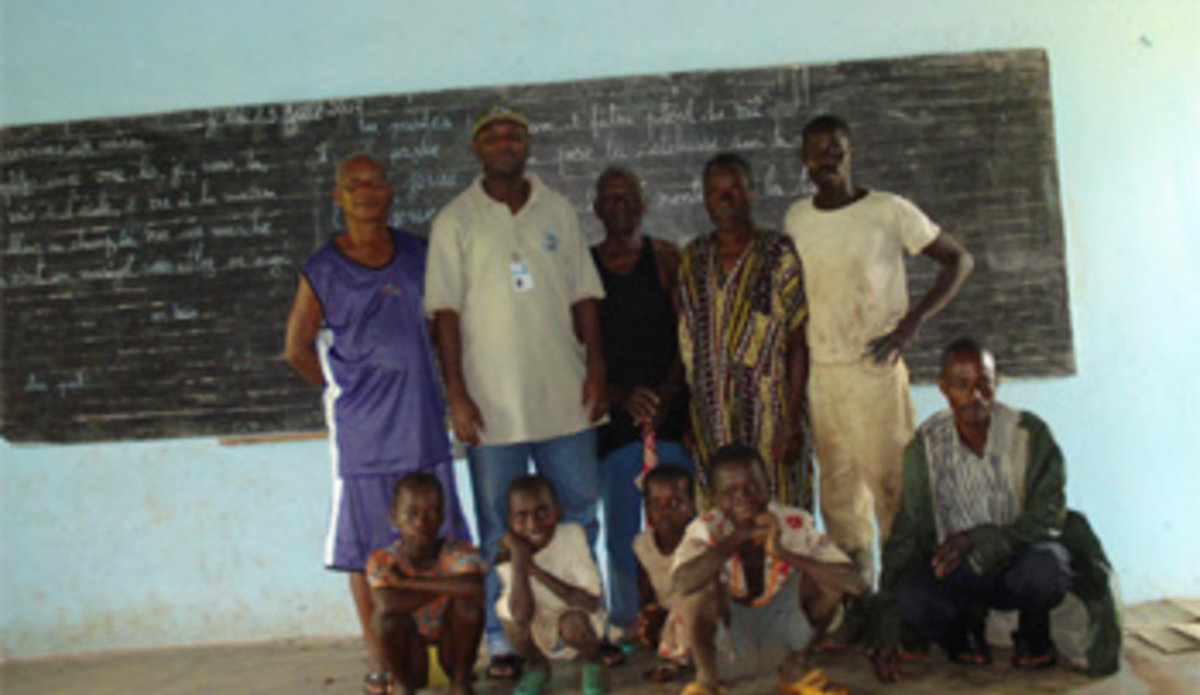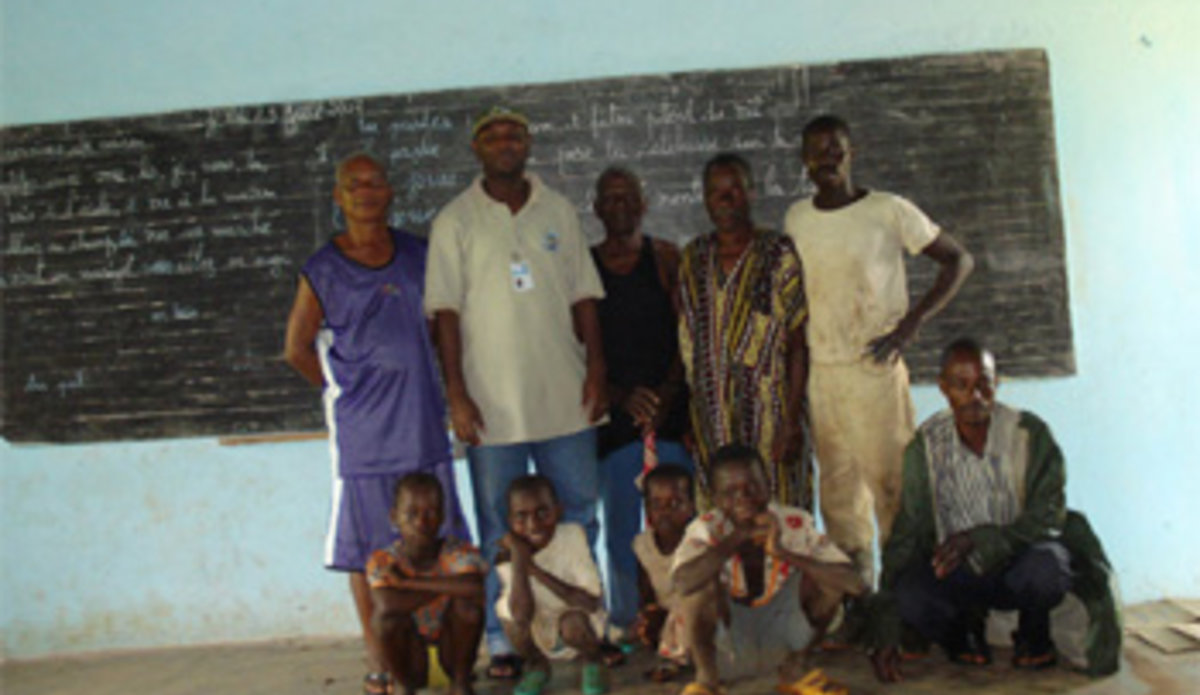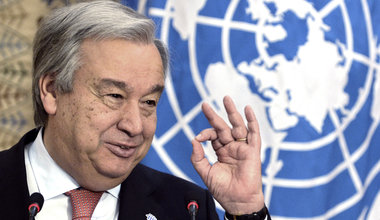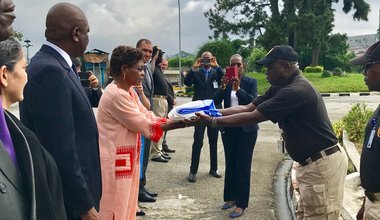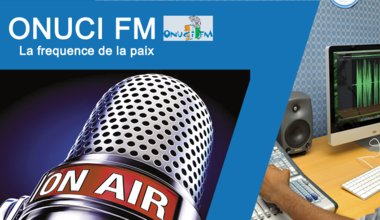WITH PAINT AND PLASTER, IVORIAN VILLAGE GETS BACK ON ITS FEET
The primary school in Kordrou is freshly painted, blue and white, waiting for students to return in mid-September. A few dozen feet away - the village health clinic- torched by rebel fighters in 2003 - has already reopened its doors for business.
After five years of conflict, the basics of daily life are slowly returning to this small farming village, 32 kilometers down a rutted, red-dirt road from Man - thanks, partly, to assistance from UNOCI.
"Before, everything was broken," said Gnokoue Victor, 65, acting village chief of Kordrou, as he proudly led a visitor on a tour of the classrooms. "The walls weren't painted. We redid them."

The rehabilitation has been realized thanks to an eight-million CFA grant from UNOCI. Instead of hiring laborers, the villagers restored the buildings themselves - then used the savings to renovate a collection of houses for government teachers they hope will finally return this fall 2007.
"These people are economic victims of war," said Abdourahamane Ganda, UN Volunter Civil Affairs Officer in charge of Quick Impact Projects (QIP) for Sector West, which includes the western Ivorian village of Kordrou. "They wanted to work, but the war impeded them. But they've decided to get out of their misery. We gave them a bit - and they did a lot with it."
Life has indeed been hard for Kordrou's 3,000 residents. Rebels arrived one August night four years ago, locals say. They destroyed the school and the local health clinic. Then they fought each other, while the villagers hid in the bush. Later, they rounded up 40 residents and blamed them for the killings.
"We said, 'how could we kill?'" Gnokoue recalled. "'We don't have weapons. We have nothing.'"
Today, many are still penniless. Most, like Gnokoue, are subsistence farmers, surviving on the manioc, rice, bananas and maize they cultivate in small plots. But they nourish bigger dreams: Paved roads, electricity - maybe even an ambulance for the village.
But for now, they are concentrating on finishing the UNOCI project. That includes opening a maternity wing in the clinic and possibly a pharmacy. In August, a government nurse arrived to work full time at the health center.
Then there is the school, which serves three villages, and has been run by volunteer teachers ever since the professional ones fled, in 2002.
"I think there's one thing you haven't talked about," said UN Volunteer's Ganda told several village elders, as he surveyed the newly painted classrooms one recent morning. "Classes are starting soon - what are you going to do about school supplies?"
As it turned out, the village was eligible for UNOCI starter kits of textbooks, pens and notebooks. "If you make a formal request, I'll try to follow up next week," Ganda said.
Gnoukoue, the acting village chief, nodded, a smile on his face. "With this rehabilitation, we feel peace is really returning," he said. "A big thank you to UNOCI."
Elizabeth BRYANT
Former PIO Officer, Abidjan
 ONU
ONU Nations Unies Maintien de la paix
Nations Unies Maintien de la paix
